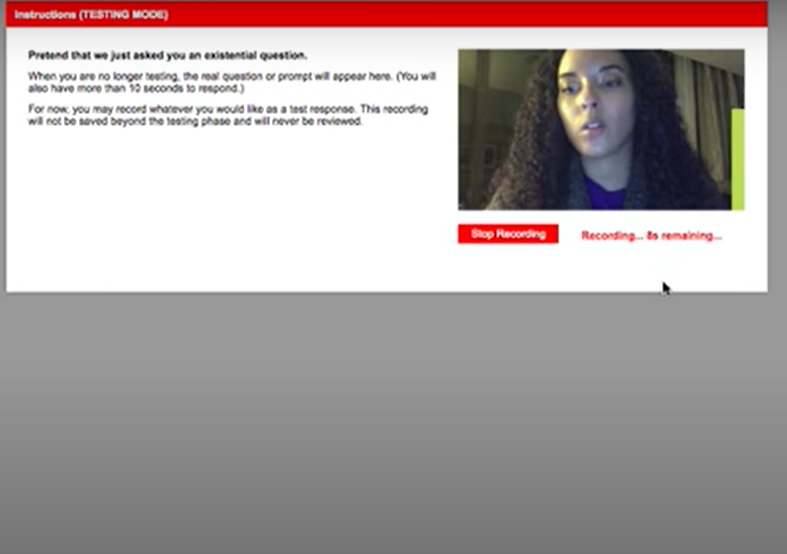How to ace Columbia SIPA's "Video Response" Interview
/The School of international and Public Affairs (SIPA – pronounced “SEE-pa”) at Columbia University in New York City is one of the leading institutions in public administration and international affairs in the world. With research centers in Development Economics, Global Energy, Global Economic Governance, International Conflict Resolution, and War and Peace Studies, any student interested in international public policy can find a home for themselves at this Ivy League School.
Overview of the Video Response
Unlike many other graduate government programs, SIPA has included a video interview essay or “Video Response” as part of their application. The Video Response is only available to applicants on their application portal after they have submitted their application and paid the application fee.
The response is high-stakes in that you only get one 60-second opportunity to answer a random question and the question could be on ANYTHING!
What is SIPA Looking For?
The Video Response is not a job interview. It is not an opportunity for SIPA to fill-in gaps in your application, nor is it an avenue for you to learn more about SIPA. The question you answer is not one that the admissions committee serves up specifically for you after reading your application. Given that the questions asked range from softballs like “how was your summer” to real stumpers like “Would you detain or kill a terrorist suspect without a trial?” it is also not a controlled experiment to see measure the knowledge of applicants or understand how they think on their feet.
Instead, SIPA’s Video Response is a way for you to put a literal face with your application. And so you want that face to look as professional and poised as possible.
Tips for perfecting the SIPA Video Interview
1. Expect to be flustered.
The questions could be on ANYTHING. Which means the likelihood that you will prepare for exactly the right question are nil. Instead, make it your priority to practice the act of answering questions, rather than to memorize responses to specific questions.
2. Remember the 7-38-55 Rule.
Pioneered by psychology professor Albert Mehrabian at UCLA and popularized through books such as Never Split the Difference by FBI Hostage Negotiator Chris Voss, that 55% of meaning in conversation is communicated by body language, 38% by the tone of your voice, and just 7% through the actual words that come out of your mouth! There is a reason why many politicians including Donald Trump replay their TV appearances on mute – that’s how people get most of the meaning.
If you just practice the words to say, you are missing out on 93% of the meaning! Instead practice looking and sounding excited, open, and friendly by rehearsing answers to questions in front of a mirror or by video recording yourself.
3. *Lights*, Camera, Action!
Remember that you need to set your stage. That means having good lighting (to show your face), a good camera (ideally at eye-level), and a professional non-obtrusive background. Do a screen test in different locations to find the one with the best lighting, acoustics, and ambience!
Sample questions.
For a full list, including actual questions from the past 3 years, please check out our interview prep service.
Personal Background
What are your most formative memories as a child?
What is the leadership experience at work that you are most proud of?
What is a piece of feedback you’ve gotten?
Why SIPA?
How do you think your academic and professional experience has prepared you for SIPA?
What are you looking forward to doing at SIPA?
How will being in New York City help your short term goals?
Behavioral Questions
How do you handle multi-tasking?
What are you unusually good at?
Who do you turn to for advice?
Areas of Interest
What course did you enjoy the most as an undergraduate student?
Where do you get your news?
What policy issue has changed the most in your lifetime?
Head Scratchers/ Current Events
Should government policy provide equity or opportunity?
What responsibilities do companies have to incorporate environmental sustainability into business practices?
How should western countries balance their immigration policies with the economic needs of their social safety nets?









